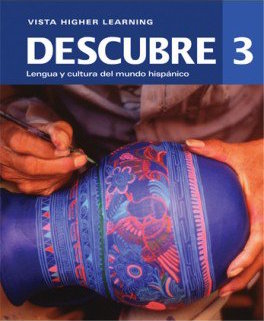
All Solutions
Page 380: Antes de ver el corto
|VOCABULARY | |
|–|–|
|acompañar / *to come with* |el compromiso / *awkward situation* |
|la barbaridad / *outrageous thing* |contundente / *filling; heavy* |
|el cochinillo / *suckling pig* | el jabali / *wild boar* |
|el/la comensal / *dinner gues* |la ofensa / *offense* |
1. Cuando un plato es muy caro, podemos decir que Cuesta una **barbaridad.**
* *When a dish is very expensive, we can say that it costs a lot.*
* *If a dish fills you up immediately, it means it is a hearty dish.*
* *Someone who is invited to eat is a diner.*
* *A wild boar is a species of wild pig.*
* *In some cultures, refusing food is an offense.*
* *Putting someone in a commitment means putting them in an uncomfortable situation.*
1. ¿Te gusta cocinar? ¿Crees que cocinar es un arte? / *Do you like cooking? Do you think cooking is an art?*
* **Me gusta cocinar, y creo que es todo un arte, pero depende de su propósito.** / *I like cooking, and I think it’s quite an art, but it depends on its purpose.*
* **Casi cualquier profesión puede llegar a ser arte si se tiene un verdadero compromiso con el.** / *Almost any profession can become art if you have a true commitment to it.*
* **Sí, mi tío, y es alguien muy amable y sereno.** / *Yes, my uncle, and he is a very kind and serene person.*
* **Algunos sí la tienen, pero depende de la cantidad de fama y la educación que recibieron en casa.** / *Some do, but it depends on the amount of fame and education they received at home.*
* Después de ver ambos fotogramas, podemos imaginar que la historia continua cuando todos observan al critico de comida para ver su reacción y su critica a la misma, el chef esta nervioso por el resultado.
* *After watching both stills, we can imagine that the story continues as everyone watches the food critic to see his reaction and his critique of the food, the chef is nervous about the outcome.*

